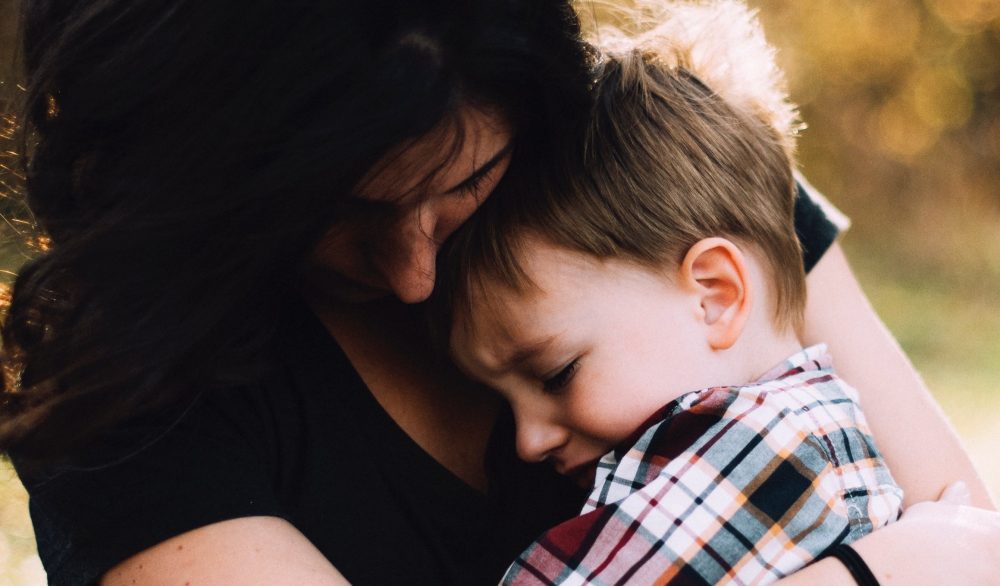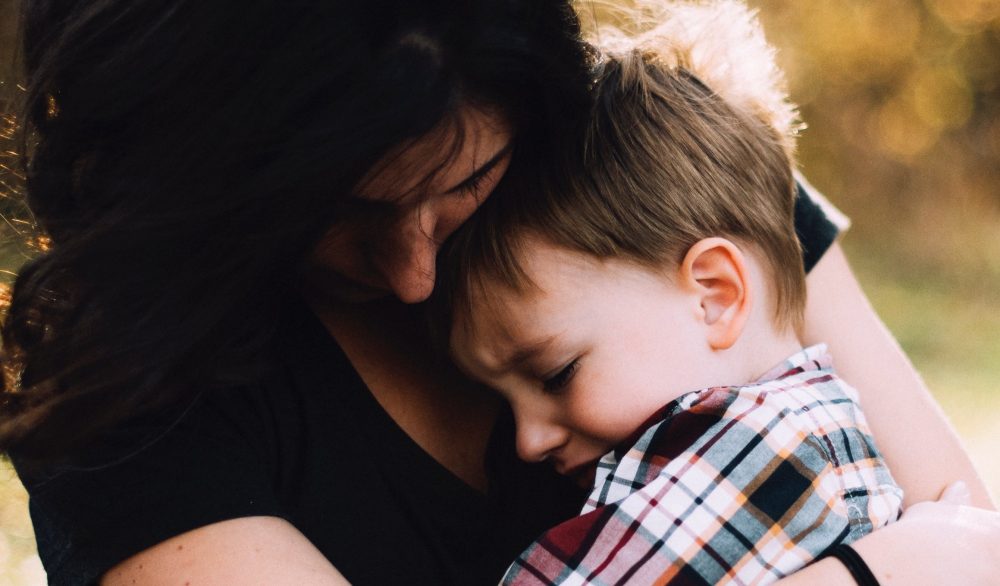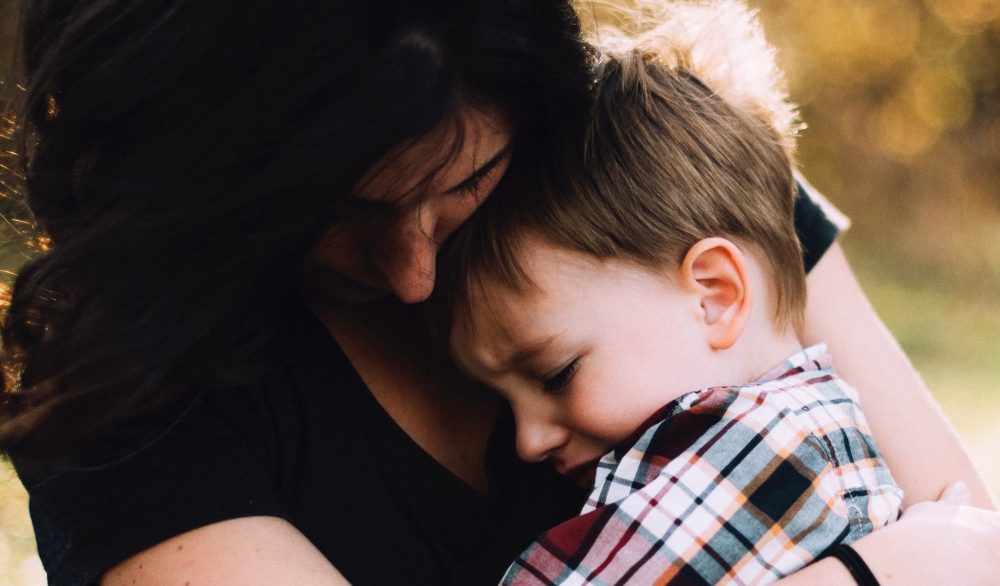
Mili, a three-year-old, wanted to sleep even before her father returned from office. Not that she hates her father, but she is avoiding something these days. This change in behavior is quite recent. Do you want to know what is going in the mind of this little girl? She is quite stressed. What is that that is affecting her? The behavior of her parents is taking a toll on her health. No, her parents do not beat her nor do they mete out bad behavior. She is stressed because they do not listen to her or pay attention to her concerns, especially in the evening when her father returns from office. She feels quite lonely when her parents are busy talking to each other and occasionally nod to her. The inside story is that her father is going through a bad resignation phase and her mother is trying to help him out of this situation. However, her father’s professional woes have taken a toll on the little one.
While this might sound absurd to many, stress has become quite common in children. They are not able to cope with stress as they are not aware of it in the first place. It is required that parents and closed ones understand what a little kid might be going through and help him or her out of it. However, some amount of stress is required for children as well. How to understand how much stress is good enough?
Good Stress versus Bad Stress
Children encounter many new things on a daily basis. They meet strangers, face strange situations and even episodes wherein they are not close to their parents or other loved ones. Such acts make them stressed. There are different levels of stress that one comes across. While some are good and tolerable, the other is bad and toxic. Good and tolerable stress help kids to cope up and learn survival skills. However, bad and toxic stress erodes the kids’ emotional well-being. If we talk about Mili (mentioned above), she might be facing tolerable stress as her father’s resignation is a temporary thing.
How Good Stress Helps Kids?
- Stress like starting school, solving puzzles, learning to ride a bicycle, helps kid solve challenges
- It encourages kids to acquire knowledge as to how to cope with such situations when faced frequently
- Strange and new situations help kids to learn new skills to overcome them
Parents these days shield their kids from all kinds of stress. Hence, many kids are not aware of how to react and solve situations when they encounter them. It is the onus of the parents to make their kids independent and expose them to the right kind and amount of stress regularly. However, there is also something like bad and toxic stress. How can parents realize that their kids are going through such a difficult phase?
Reasons and Causes of Stress in Children
Unlike adults, children face stress from outside or external sources, most of the times. External stressors cause anxiety in the mind of kids. They might be getting anxious about what is going on at school or in their family or even in the play area. This anxiety results in stress. As a parent, you need to tap the events happening in your kids’ life by observing them and even talking to them. These might be the probable stressors in children:
1. Changes in the Family
The status of every family keeps on changing at regular intervals. Some new members are added, some leave for heavenly abode, there might be divorces or separation from a big joint family, shifting of the family to a new home and so and so forth. While kids are able to cope up with some tiny changes, they are not able to manage how to behave or react in the major ones. It might seem quite normal to you as an adult, but for kids, it might be a major move. Changes in the family make a child feel insecure and at times, lost. Sometimes, your child is close to a relative and feels quite safe in their custody, without you being aware of it. If such a relative is no more present, chances of your kid being the stressed increase.
2. School induced stress
You are not present in school and probably, most of the times, you are not aware of the anxiety and the stress that is induced by the environment in school. Beginning a school or shifting to a new one can make your kid nervous. Sometimes, kids feel insecure in the company of some kids at school or on the school bus. Kids even get anxious when they do not like a certain subject or the educator associated with it. Someone might be bullying your kid in the school or on the bus. It also might happen that your child is not able to make friends. There might be tons of reasons for this.
3. Too Tight Schedule
Sometimes your kid might be involved in too many things at one point in time. Your child already has a tiring day at school. He needs to finish his homework and also have some rest. On top of all this, if he is also involved in extra sports and activities classes, he does not get time to rewind and relax. He might want to play outdoors with friends, without being monitored. If this does not happen, he might get stressed.
4. Self-Imposed Pressure
Some kids have the inferiority complex. They think that they are not able to fit in with their peer group. Either they are not able to perform well in the classroom or they are afraid to commit mistakes. There are plenty of reasons for such behavior. When such kids are not able to cope, they become stressed.
5. Violent stories
Once I was narrating a story to my 3-year-old. I explained to her how bad bacteria kill the good ones in your gut and why she should have yogurt every day. However, the word ‘kill’ had a big impact on her mind. She used to be scared as to how someone can get killed – good or bad. I have to change the words while narrating such stories to her as of now. Some kids like mine get anxious when they listen to such stories.
6. Aggressive Shows
Kids are not used to watching aggressive and violent TV shows and movies as well. They are not even able to witness such events. Once, my little one witnessed a road accident – a couple of men fell from the bike while driving it in the wrong manner. She started crying when she saw this. Even movies that have fighting sequences or killing scenes should be avoided being shown to young kids. Such actions have a deep impact on their blossoming minds. You might not realize this but they enact the entire scene picturing their loved ones at times. This might cause behavioral concerns later and at times, even stress.
7. Child Abuse
Never ever think that this is not possible with your child. Always be alert and ask your children whether they are okay. It might be the case that someone in your vicinity or someone close to you or someone in the school is behaving oddly with your kid. If your kid does not open up to you, make him or her comfortable and ask relevant questions.
Read: Know How to Protect Your Child from Abuse Right from the Beginning
Behavioral Changes in Stressed Kids
If you are present with your kids most of the times, you might be able to notice subtle changes in their behavior. While some can be felt instantly, others might be gradually noticed. Some kids can express their fear and anxieties; however, others are not able to. Hence, it is necessary that parents spend some time with their children to tap their frights and stressors. These are the things that you need to pay attention to:
- Watch if your child is getting a little irritated
- Tap his or her sudden mood swings
- Is he withdrawing himself from events and activities?
- Does he like spending time with you in the same way as he did earlier?
- Listen closely to all the words and language he uses
- Has he become more attached or more reserved?
- Sudden bouts of crying and screaming
- Are his hobbies the same as before
- Is he displaying aggression in his demeanor?
- Does he wet his bed frequently now?
- Is he willing to go to school?
- Is he comfortable in gatherings?
What Can Parents Do?
- Parents can provide a healthy and loving environment for their kids. Inform them about major family changes in advance, if possible. Teach them how they can cope with the changes. In case of death, you can tell them that they will be given the same love and care by others in the family. In case of birth, convey that the new member is a part of the family.
- While shifting to a new place or city, prepare the kids in advance. Tell them the truth and do not sugar coat the benefits of the new place. Inform them about both the good and bad they will get over there.
- When your kid returns from school, ask him open-ended questions. Do not reprimand them for not completing the tiffin. Ask them how was their day, what new did they learn or how were his friends, etc.
- When your kid expresses her concerns at school, do not call the school immediately. First, get all the details from your kid without panicking. When your kid goes off to sleep, call the authorities and know more details about it.
- Make eye contact when your kid is communicating something important.
- In case your child is being bullied, give him options on how to face bullying. If he is still not able to, you can express your concern to the authorities.
- Do not schedule back-to-back activities for your kids. Give them some rest and break in between them.
- Talk about your kids’ fear and concerns openly with her. Ask her to express herself.
- Make a point to spend quality time with your kids every day.
- Make your child aware of abuse at a very young age.
- Do not criticize in front of your kids. In fact, do not crib ever. Every person has his or her own struggles to deal with.
- Be present with your kids while they watch television and other media. Do not expose them to violence in their formative years.
- Do not place unrealistic expectations on the kids.
- Be positive and encourage your children to be the same.
- Encourage healthy eating and sleeping habits in kids.
How to Prevent and Reduce Stress in Young Children?
You cannot be present with your kid all the time and omit external factors of stress altogether. However, it is possible that you groom your child in such a manner that he or she can face the stress and emerge victoriously. You need to lead your kid by example.
1. Do not Avoid, Face the Stressors
We, as adults, have a tendency to avoid people and situations that induce stress in our lives. However, instead of avoiding them, we should stand up and face them. This will help your kids to behave in the same manner. Encourage your children to be strong and face the fears. They should not be taught to run away from them. When kids face the situations that induce stress, they will come to know that stress subsides naturally.
2. Do Not Encourage Perfection
If you are one of those parents who want their kids to be perfect in everything, it is time to change this behavior. Striving to be perfect induces stress in young minds in some way or the other. Do not force your kid to be number one. Accept your children the way they are.
3. Raise the Spirits
Kids are born optimists. However, they learn by example and lose their real sheen in the negative world. Praise your child’s good behavior and try to use positive language. Instead of teaching do not wet the bed, applause them when they do not.
4. Let them Free
Most of the day of the kids is structured by their parents and teachers. Kids do not get time to be their real selves at times. Hence, it is the onus of the parents to let them be on their own for some time every day. Then, they will not forget their actual nature in the daily humdrum.
5. Praise them at the Right Time
Once, my toddler was not willing to go on slides in the park just because a couple of elder kids were playing there. She asked me to please tell the elder ones to play somewhere else. Instead, I asked her to play on the same slide and face them. She did the same and there was nothing to worry about. I praised her and she didn’t complain for the entire time we were there. Kids need to be encouraged, praised and rewarded for their bravery. You did not need to give chocolates or games for this – a hug, a kiss and a pat on the back is enough at times.
6. Inspire them to Express
This practice should begin quite early. You need to always encourage your kids to express. Expressive kids are quite better off than their peers. When children express their fears and concerns, parents can easily make them learn how to get out of them.
7. Stimulate Problem-Solving Skills
Do not rush to help your kid every time. Instead, teach your kids how to solve problems on their own. At times, your kids are aware of how to get out of tricky situations but they are not able to, in your presence. This is because they are dependent on you. If your kid is not able to generate solutions on his own, give him some options and let him choose the right one according to him. If he is not able to solve, let him choose another one and so on and so forth. This will help him choose the right one, next time when he faces a similar situation.
8. Do Not Panic
When you panic, your kid learns the same from you. You need to stay calm when you face the stressors. I remember a few incidents when my daughter was not even a year old. When I panicked, she used to start crying and at times, begin peeing and pooping. This aggravated my anxieties and stress. With toddlers, when you ask them to hurry up, they get all the more sluggish. With experience, I now know how to behave with kids. I prepare myself well in advance. However, when I am not able to, I make her understand that we are getting late calmly and she reciprocates by helping me.
9. Make them Learn
Whenever your kid comes running to you when he faces some problem, do not react immediately. First, listen to your child and ask him whether he did something to solve it. Calm him down and ask him to take deep breaths. When you repeat this behavior, he will automatically learn to calm himself when he is trapped in difficult situations.
Also Read: Sorted Parenting and Its Benefits – Are You a Sorted Parent?
To conclude, fear, anxieties, and stress are quite common in both adults and children. The point is how we deal with them. Try to learn out of stressful situations rather than give in to the pressures. Always teach your kids to do the same. Happy living!


